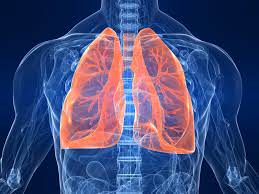The cycle of new viruses that are exposed to the world does not ever end. Whether it shows up on a cruise ship or in a school, they are constantly being discovered. Just this month a new one was introduced, MERS.
MERS stands for Middle East Respiratory Syndrome Coronavirus. It was also known as the Novel Coronavirus or SARS-like virus.
What is MERS?
MERS is a coronavirus. A coronavirus usually causes respiratory illness in mammals, including humans. They are responsible for approximately 1 in every 3 cases of the common cold. However, this MERS is a more deadly virus than any other that has been seen before.
The coronavirus gets their name from the crown-like projections on their surfaces.
The MERS-CoV, the full name of the virus, is a fairly new strain. It started making people sick in the Middle East in 2012. It was first identified when a Saudi Arabian man came down with “SARS-like” symptoms. He died in June 2012. Next a man in Qatar became with similar symptoms after coming from Saudi Arabia. He was sent to get treatment where it was found that he was infected by MERS.
What are the Signs and Symptoms of MERS ?
Some people do not have symptoms or get ill when they become infected with MERS.
- Couging
- Shortness of breath
- Malaise
- Chest Pain
- Fever
- Mucous
- Diarrhea
- Renal (kidney) failure.
Some describe the feeling of becoming ill from MERS as a flu-like illness with signs and symptoms of pneumonia.
Is there Treatment/Vaccine for MERS?
According to the US Centers for Disease Control and Prevention (CDC) and WHO (World Health Organization), there are no specific treatments for patients who become ill with MERS infection.
All doctors can currently do is provide supportive medical care to help relieve the symptoms. Supportive care means providing treatment to prevent, control or relieve complications and side effects, as well as attempting to improve the patient’s comfort and quality of life. Supportive care (supportive therapy) does not include treating or improving the illness/condition.
Who are more vulnerable to infections and complications?
The following groups of people are more susceptible to MERS-CoV infections and complications:
- Patients with chronic diseases, such as diabetes and heart conditions
- Organ transplant recipients who are on immunosuppressive medications
- Other patients whose immune systems are weak, such as cancer patients undergoing treatment
- Of the over sixty cases of MERS-CoV infections confirmed so far, the vast majority have been male (it is too early to confirm that males are more vulnerable than females)
Fast Facts on MERS
There is a lot to know about Middle East Respiratory Syndrome Coronavirus, so here are the main things you should remember!!
- Coronaviruses commonly cause respiratory illness in mammals, including humans.
- Coronaviruses are responsible for approximately 1 in every 3 cases of the common cold.
- MERS-CoV started making people ill in the Middle East in 2012.
- Infected patients may have symptoms such as coughing, mucous, breathlessness, chest pain, fever, diarrhea.
- There are currently no vaccines or treatments for patients who become ill with MERS
- Risks related to MERS-CoV include pneumonia, kidney failure and death.
- People who become ill while on a trip should avoid close contact with other people.
- Unless you are caring for a person who is sick and infected with MERS-CoV, your risk of contracting the virus is small.

